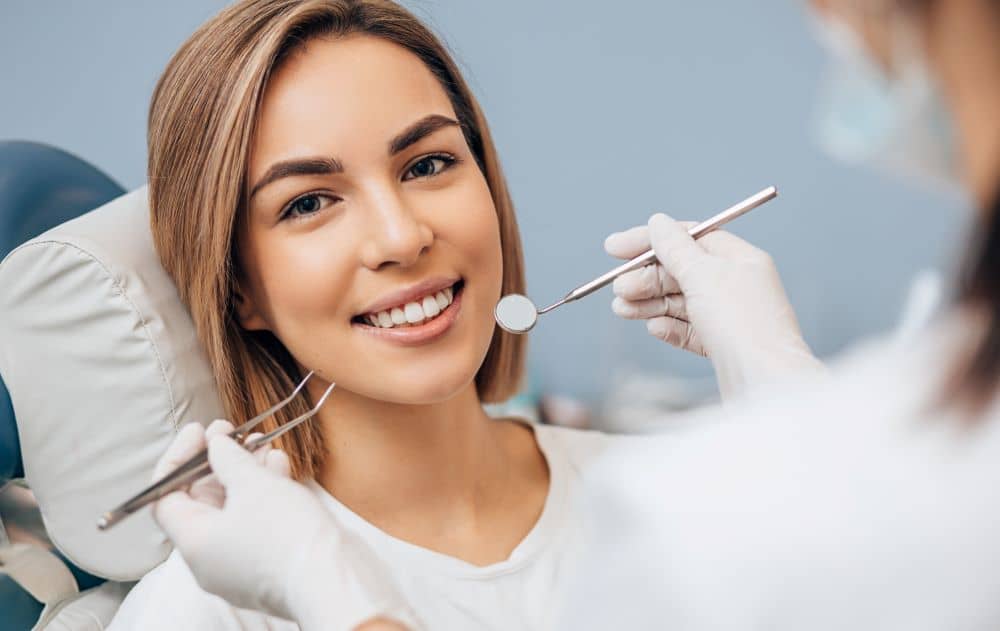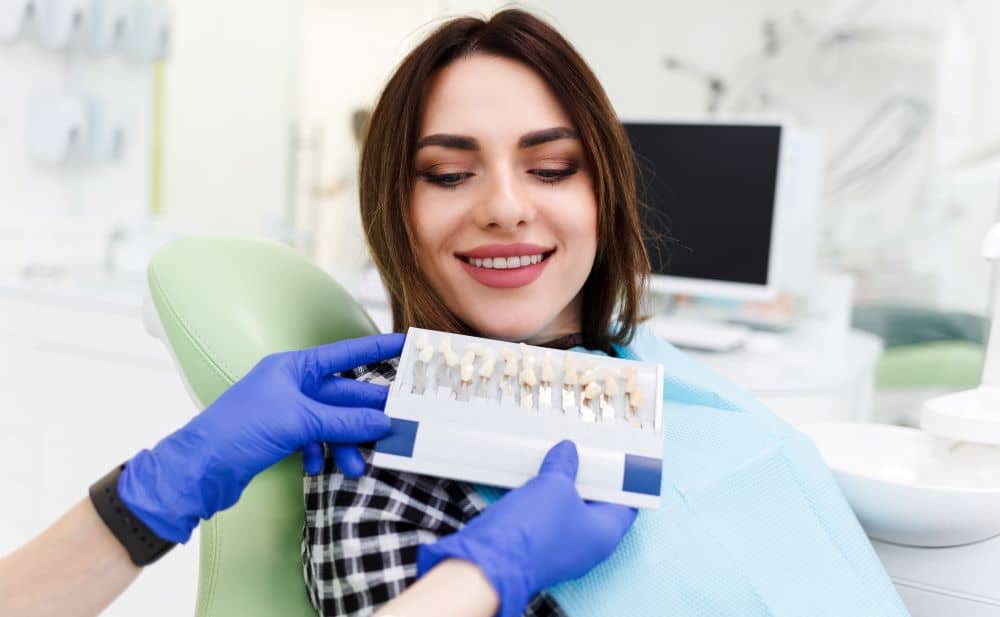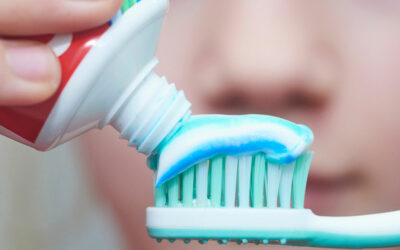We often hear of New Year’s Resolutions that involve losing weight or getting rid of a bad habit, but have you ever thought about setting some New Year’s resolutions for achieving a healthier smile?
The new year is a great time to develop new habits that will keep your mouth, teeth, and smile healthy for years to come. Our experts have put together a list of 10 Dental Resolutions for the New Year to help you get started on improving your oral health.
10 New Year’s Resolutions for a Healthy Smile
1. Brush Twice A Day
Brushing your teeth twice a day is one of the most important habits for maintaining optimal oral health. However, did you know that only about half of Australians brush their teeth twice a day?
To establish the habit of brushing your teeth at least twice every day, try following these tips:
- Brush first thing in the morning to remove any plaque that may have built up overnight
- Brush right before bed to remove any food particles or debris
- Avoid brushing too soon after eating or drinking (aim to wait at least 30 minutes but go ahead and rinse your mouth with water in the meantime)
- Use a pea-sized dab of toothpaste with fluoride
- Brush gently using circular motions
Brush for a full two minutes, spending equal time on different portions of the mouth (if necessary, use a timer or download a toothbrushing app to make sure you are brushing for the full two minutes)
2. Floss Every Day
Do you know what is equally important as brushing your teeth every day? Flossing. Without regular flossing, bacteria can easily build up in the crevices between teeth. This buildup can turn into plaque, leading to gum disease, tartar, and tooth decay.
Flossing should be done before you brush your teeth in the morning and before bed at night. To floss properly, hold the floss between your index fingers and gently clean between each tooth, moving the floss up and down and gently working it into the gumline. If you struggle to floss regularly, ask your dentist about a water flosser or a floss threader.
3. Replace Your Toothbrush Regularly
How long have you been using your current toothbrush? Has it been longer than three months or do you not remember when you last replaced it? If so, it is important to replace your toothbrush.
Here are some tips for choosing a new toothbrush:
- Choose a toothbrush or toothbrush head with soft bristles that comfortably fits your mouth
- Consider updating to an electric toothbrush to see if it would help to make brushing easier or more comfortable if you find it difficult to use a manual toothbrush (otherwise a manual toothbrush is just as effective)
- Ask your dentist for a toothbrush recommendation if you are not sure which toothbrush is ideal for you
Here are some guidelines on when to replace your toothbrush:
- Every 3 months
- When the bristles are frayed or damaged
- If you have been sick
- If you are not satisfied with the toothbrush you are currently using
4. Eat A Diet That Includes Foods That Are Good For Your Teeth
Certain vitamins, minerals and nutrients, along with a balanced diet, can help protect teeth, rebuild teeth, lower the risk of certain oral health issues, and support overall health.
Some of the best foods and beverages to consume to help keep your teeth healthy include:
- Crunchy fruits and veggies, such as apples and celery, are high in fibre. Along with providing a variety of nutrients, these types of fruits and vegetables stimulate saliva flow and naturally help to scrub plaque off of teeth.
- Milk, cheese and other dairy products contain high amounts of calcium and can help neutralise acids on the teeth.
- Leafy greens, legumes, and nuts contain a wide range of crucial nutrients, vitamins, and antioxidants that support good oral health.
5. Cut Back on Sugar
Along with eating a diet that contains foods that are beneficial for teeth, it is also important to limit or avoid foods that contribute to poor oral health. One of the top offenders? Sugar.
Consuming excess sugar can damage your teeth by contributing to plaque buildup for bacteria to feed on, resulting in acid formation, tooth decay, and weakened enamel.
6. Quit Smoking
Smoking or using other tobacco products contribute to bad breath, stained teeth, dry mouth, and gum disease. Smoking also increases the risk of oral cancer and other serious health concerns. Talk with your doctor for support on how to quit smoking or using tobacco products.
7. Drink More Water
Making sure you stay adequately hydrated is wonderful for your overall health — and it benefits your teeth too! Drinking water throughout the day helps rinse away leftover food and bacteria and helps prevent dry mouth.
8. Enhance Your Smile
Do you feel self-conscious about a crooked tooth or yellow staining on your teeth? While these cosmetic concerns may not be necessary to fix, addressing these issues can provide a significant impact on your self-confidence and how you feel about your smile.
Cosmetic dentistry offers a variety of treatment options, including:
- Veneers
- Whitening gels
- Surgery such as a gum lift
- Addressing gaps
While some procedures are simple and non-invasive (teeth whitening), others can be more extensive. Talk with your dentist about any cosmetic concerns to see what course of treatment would be appropriate for you.
9. Visit the Dentist Regularly
Has it been longer than six months since your last dental checkup? If so, be sure to schedule a hygiene visit as soon as possible. Prevention and early treatment are key to maintaining a healthy smile and avoiding serious oral health complications.
Regular dental visits offer many benefits. These checkups are an easy, effective way to remove tartar and plaque, monitor oral health, identify any concerns, and receive proper and early treatment for any issues. It is recommended to see your dentist every six months for a checkup.
10. Address Any Dental Concerns
If you have been putting off getting dental care for a toothache, crowded teeth, chipped teeth, or dental decay, make this year the time you get these concerns addressed. Untreated tooth decay, crowding issues, or damage can lead to serious complications down the road such as tooth loss or infection.
Your dentist can evaluate the health of your teeth and recommend restorative treatments to ensure you have a healthy smile.
Final Thoughts
If you are looking for help in improving your oral health or are due for a dental hygiene visit, contact us today to schedule a consultation or appointment. At 123 Dental, our team is here to help you achieve your healthiest, brightest smile in the new year and the rest of your life.










